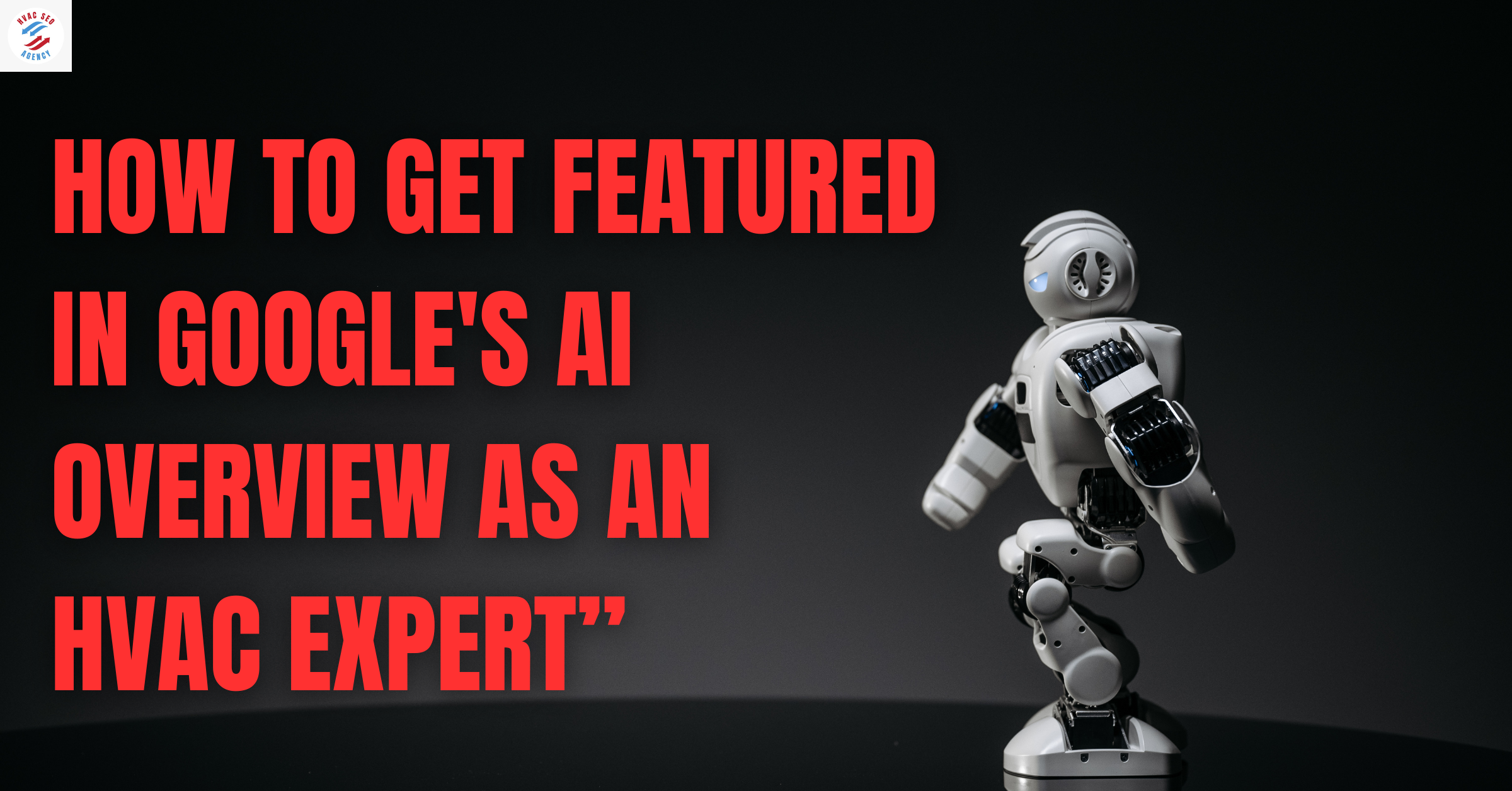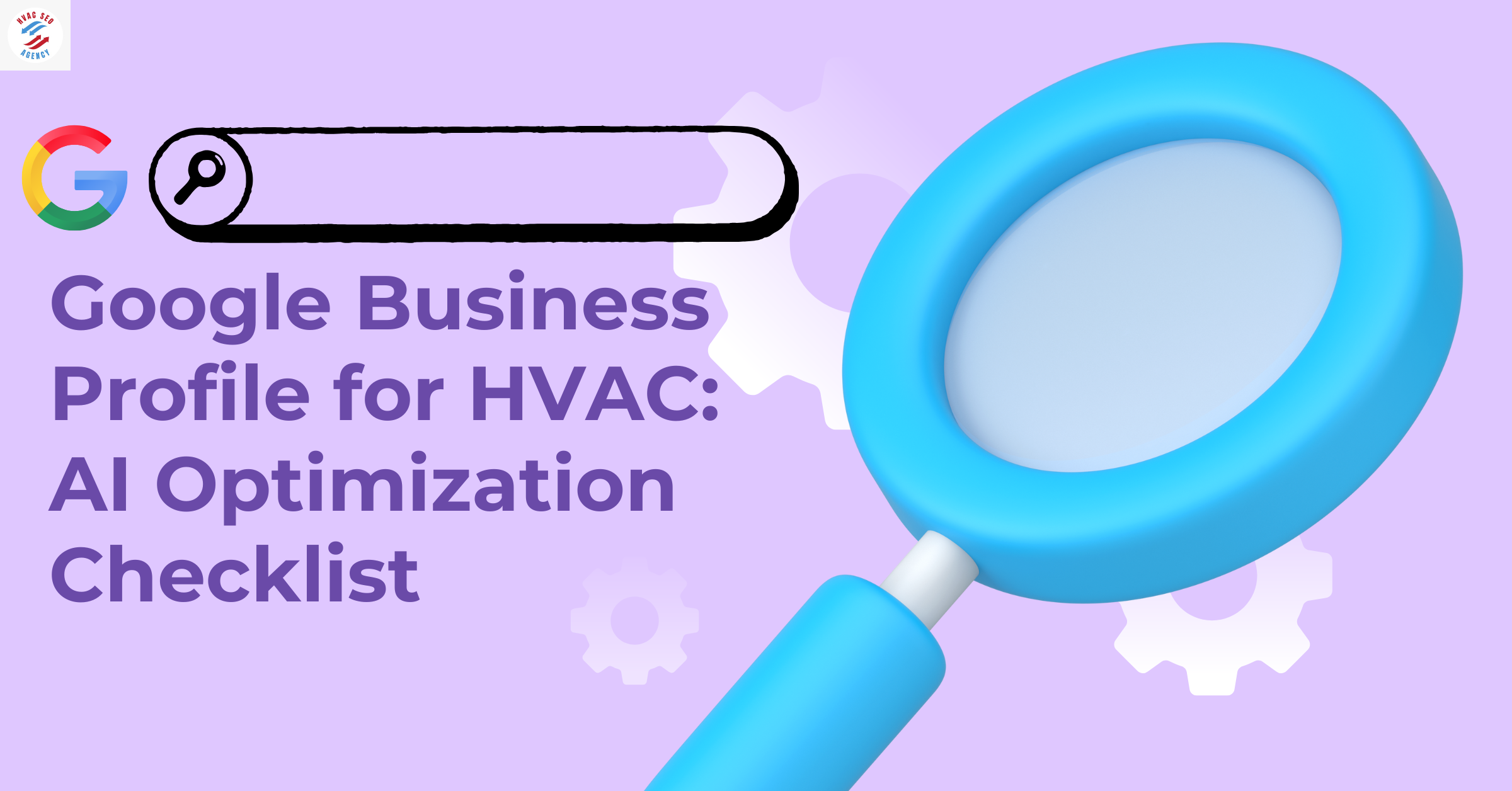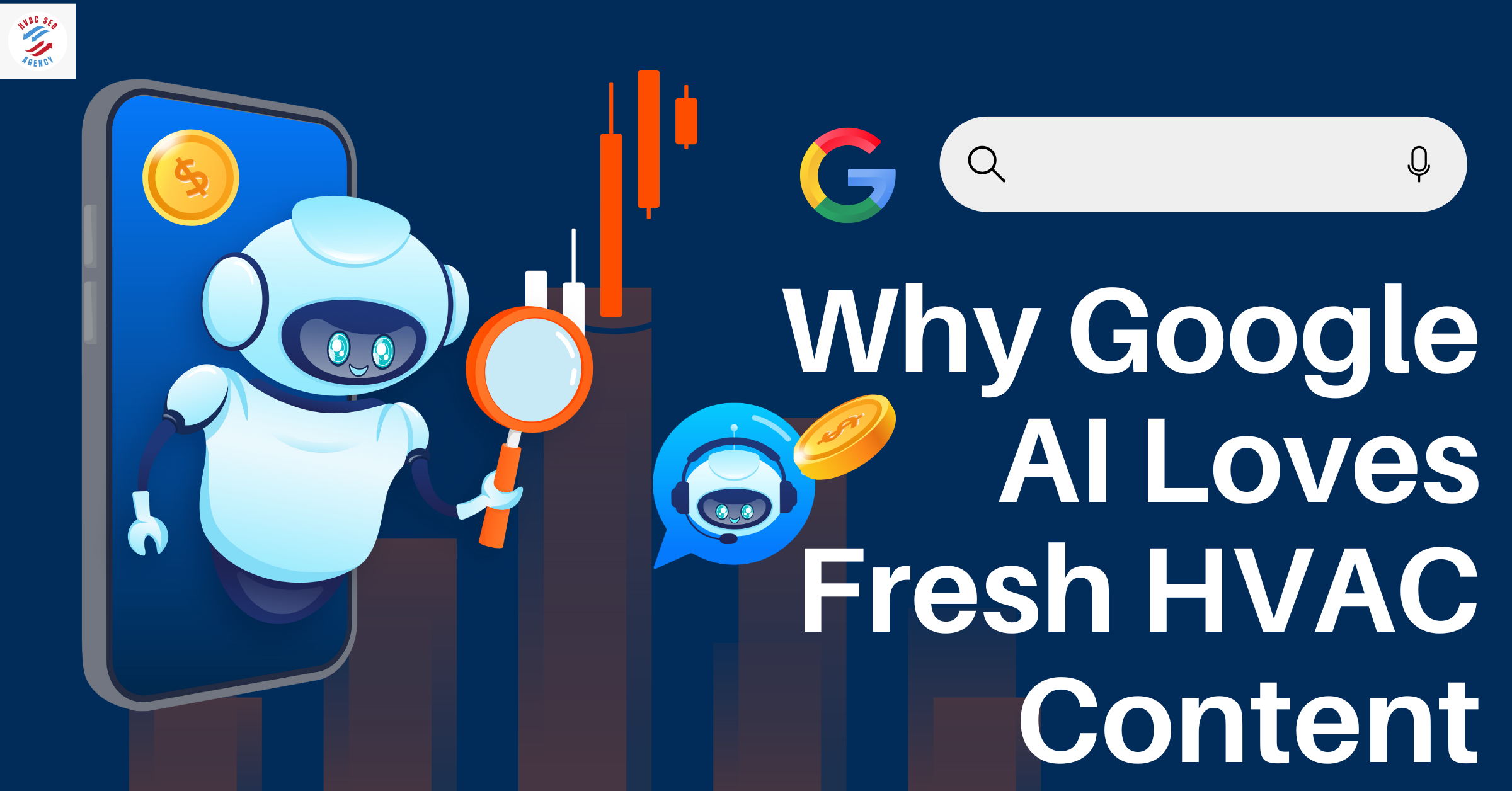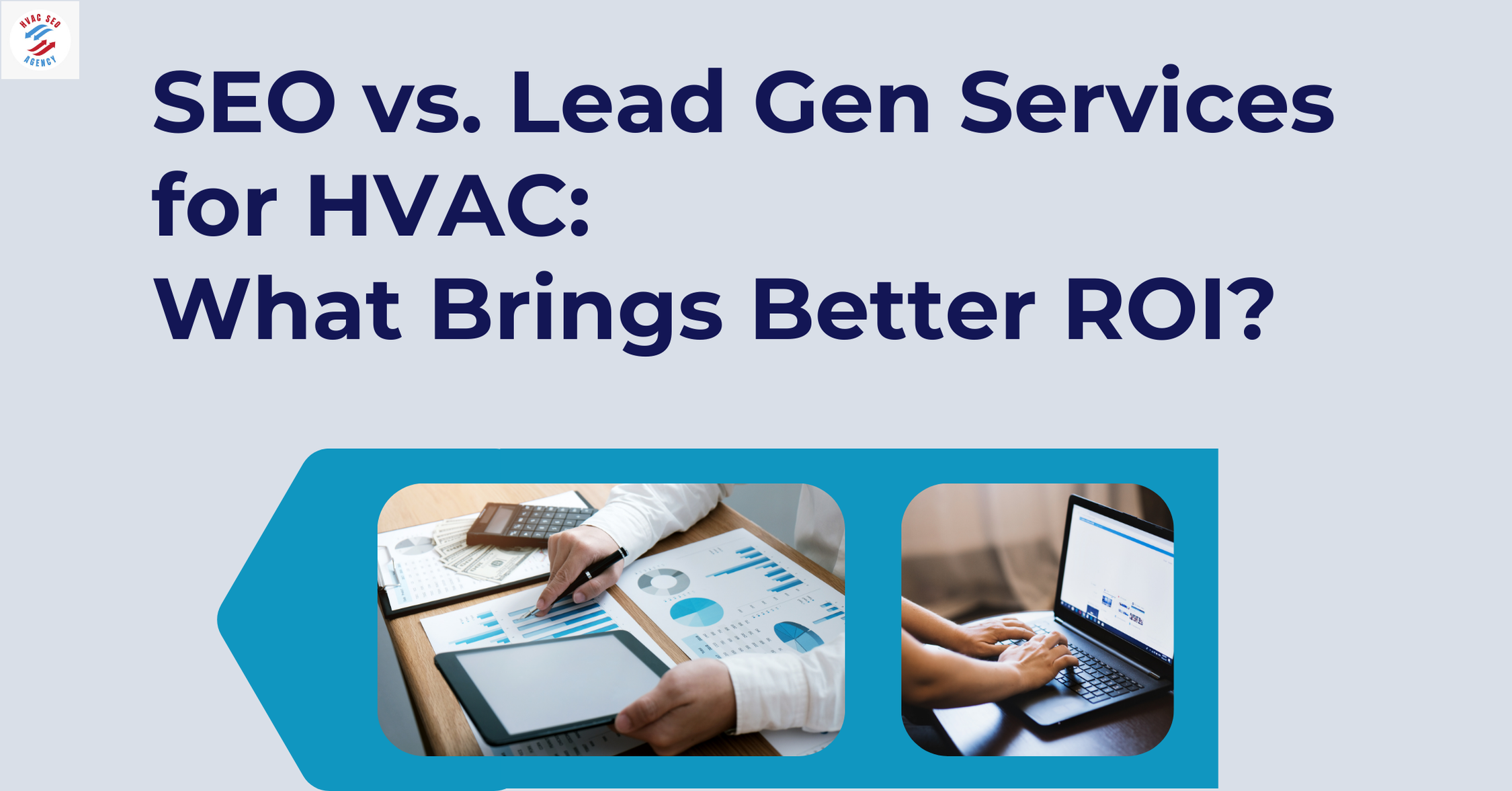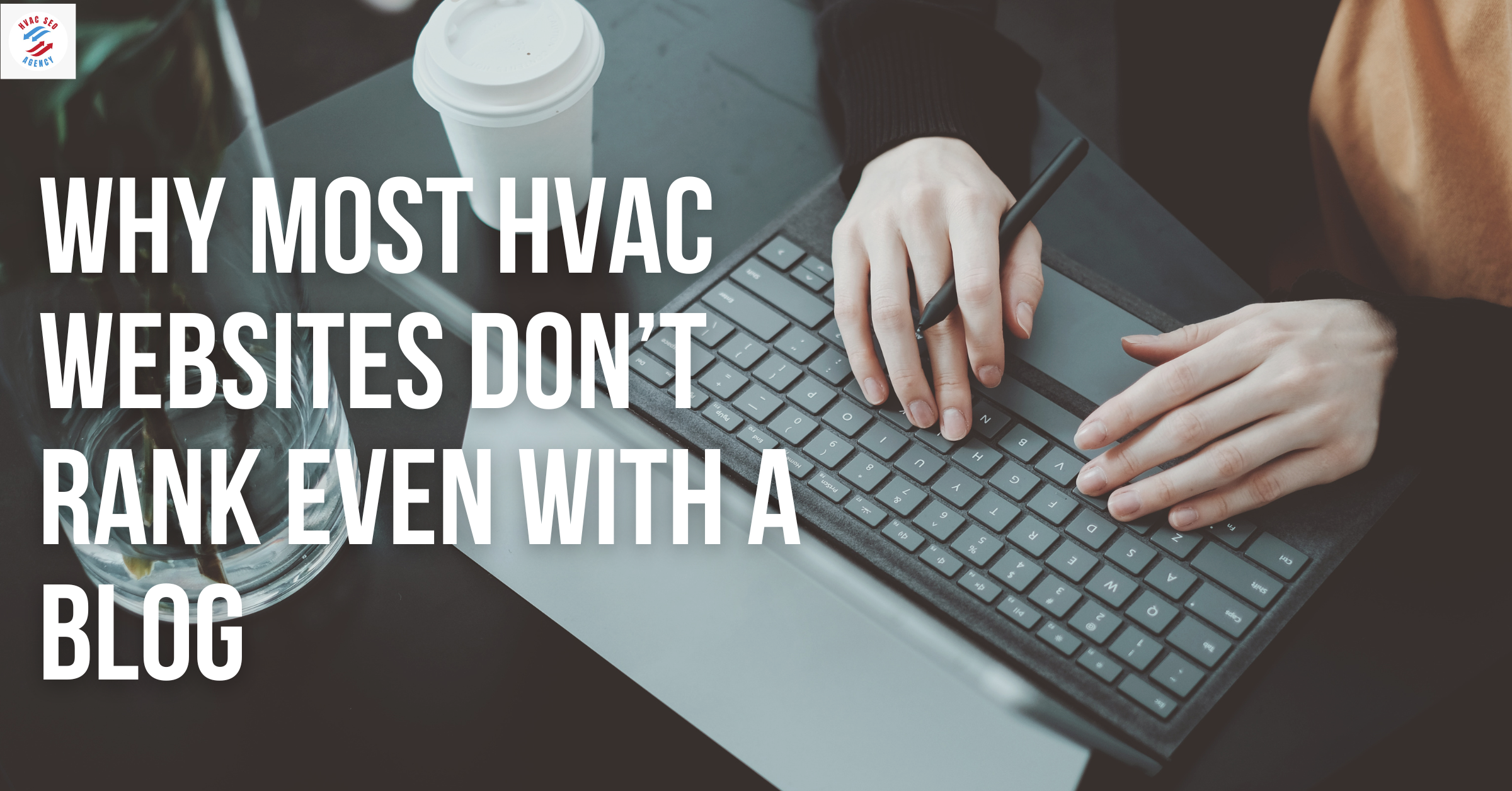7 SEO Triggers Google’s AI Looks for on HVAC Sites
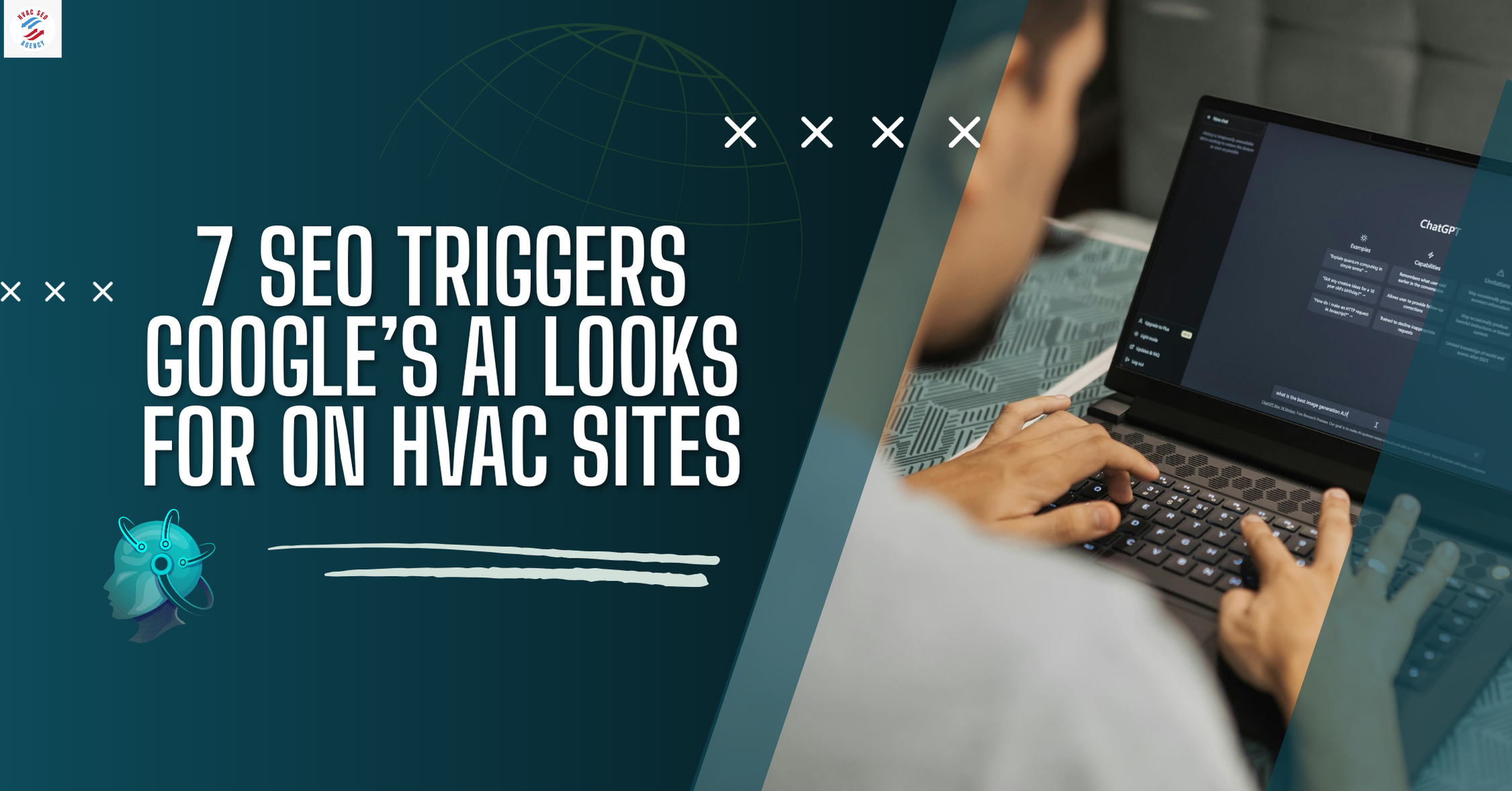
1. AI Triggers in SEO for HVAC Sites
Google’s AI evaluates hundreds of signals, but for HVAC websites, on-page SEO precision is what makes the difference between ranking on page one or being buried in results. The first trigger is content clarity and keyword optimization. HVAC businesses in the U.S. operate in highly competitive local markets, and Google’s AI systems scan websites to ensure the content is relevant, helpful, and formatted for intent-based search.
A 2025 BrightLocal study revealed that 87% of U.S. homeowners search online before calling an HVAC contractor, and more than 68% of clicks go to the top three Google results. This is why aligning HVAC content with AI triggers SEO factors such as keyword density, semantic relevance, and localized on-page optimization is critical.
For HVAC contractors in major U.S. cities, having support from an Affordable HVAC SEO Agency ensures content is not just stuffed with keywords but strategically built around HVAC on-page SEO elements that AI prioritizes, including:
Title tags optimized for service + city.
Schema markup to help Google AI interpret HVAC services.
Localized landing pages that capture neighborhood-level searches.
Answer-focused content written for People Also Ask results.
When executed effectively, these strategies elevate visibility and help HVAC companies in places like Seattle, Portland, and Denver consistently generate calls. The Best HVAC SEO Marketing Services in Seattle already integrate AI-focused content structuring with local keyword mapping, which enables contractors to dominate Google Maps and organic listings simultaneously.
Table: U.S. HVAC Consumer Search Behavior (2025)
Bar Chart showing “Impact of On-Page SEO on Lead Generation for HVAC Companies”
X-axis: Optimization level (Low, Medium, High)
Y-axis: Average Monthly Leads
Data: From HubSpot + BrightLocal U.S. stats
2. Mobile-First Indexing as an AI Trigger
Google’s AI now evaluates websites primarily through their mobile version, making mobile-first indexing the second critical trigger for HVAC websites. For HVAC contractors in the U.S., this means if a website is not mobile-friendly, it risks being invisible in search results.
Research from Statista (2025) shows that 63% of all U.S. organic search traffic now comes from mobile devices, and Google’s own studies reveal that 53% of mobile users abandon a site if it takes longer than 3 seconds to load. This is why Google’s AI uses AI triggers SEO such as page speed, mobile responsiveness, and Core Web Vitals to rank HVAC sites.
For HVAC companies serving local homeowners, a mobile-optimized site is not optional—it is essential. Mobile searchers often look for emergency services like “AC repair near me” or “24/7 HVAC repair in Seattle.” An HVAC website that fails Google’s AI tests for mobile-first design will lose out on high-intent leads.
Partnering with an Affordable HVAC SEO Agency ensures HVAC websites are fully optimized for mobile-first indexing. These agencies focus on compressing images, improving load speed, and implementing HVAC on-page SEO techniques that AI recognizes across mobile devices. The Best HVAC SEO Marketing Services in Seattle have already adopted this approach, enabling contractors to outperform competitors by appearing consistently in mobile local packs and voice searches.
Table: U.S. Mobile Search Trends (2025)
Line Graph showing “Growth of Mobile HVAC Searches in the U.S. (2018–2025)”
X-axis: Years (2018–2025)
Y-axis: % of HVAC-related searches from mobile
Data trend: Increasing from ~45% in 2018 to 63% in 2025
3. Content Personalization and User Engagement as an AI Trigger
Another SEO trigger Google’s AI actively evaluates is content personalization and user engagement. Google’s AI models now measure how long visitors stay on HVAC sites, what they click, and whether the content matches their intent. If homeowners in the U.S. search for “emergency furnace repair in Seattle” but land on a page that feels generic, bounce rates spike and rankings fall.
A Demand Metric survey shows that 80% of consumers are more likely to engage with a company that offers personalized content, and HubSpot reports that personalized calls-to-action perform 202% better than generic ones. This directly impacts how Google’s AI ranks HVAC websites.
Beyond website content, AI also influences how HVAC contractors nurture leads through email campaigns. The Role of AI in HVAC Email Marketing is critical here, because Google’s AI looks at site-wide signals including engagement from email-driven traffic. If customers click through HVAC email newsletters and stay on the site longer, Google AI interprets this as a sign of high content relevance, which strengthens rankings.
An Affordable HVAC SEO Agency understands that personalization goes beyond keyword targeting. It includes writing geo-specific service pages, answering People Also Ask questions, and aligning blogs with AI-friendly structures. Agencies offering the Best HVAC SEO Marketing Services in Seattle also integrate HVAC on-page SEO with AI-driven email marketing automation, ensuring that HVAC businesses can capture, engage, and convert leads consistently.
Table: U.S. Consumer Engagement with Personalized Content (2025)
Bar Chart showing “Impact of Personalized Content & AI Email Marketing on HVAC Conversions (U.S.)”
Categories: Generic Content, Personalized Content, Personalized + AI Email Integration
Y-axis: Conversion Rates (%)
Data: Based on Demand Metric + HubSpot + SEMrush industry studies
4. Page Speed and Core Web Vitals as AI Triggers
Google’s AI gives high priority to page speed and Core Web Vitals when ranking HVAC websites. A slow HVAC website signals poor user experience, which is one of the most critical AI triggers SEO factors. Core Web Vitals measure three areas: Largest Contentful Paint (LCP), First Input Delay (FID), and Cumulative Layout Shift (CLS).
In the U.S., Google’s research (2025) shows that a 1-second delay in page load reduces conversions by 20%, and 70% of local consumers abandon HVAC websites that load slowly. This directly impacts contractors who rely on emergency and seasonal leads. For example, during peak summer months, if a website takes 5 seconds to load on mobile, homeowners are far more likely to call competitors who appear faster in search.
This is why HVAC companies partner with an Affordable HVAC SEO Agency that focuses on technical optimization. Agencies offering the Best HVAC SEO Marketing Services in Seattle use advanced tools like PageSpeed Insights, Lighthouse, and GTmetrix to improve load times, compress images, and fine-tune HVAC on-page SEO for AI-friendliness. Faster sites not only retain visitors but also increase leads and revenue.
Table: U.S. Consumer Behavior on Website Speed (2025)
Bar Chart comparing “Leads Lost vs. Website Load Time (U.S. HVAC Contractors)”
X-axis: Load Time (1s, 2s, 3s, 5s, 7s)
Y-axis: % of Leads Lost
Data: Based on Google + HubSpot studies
5. Seasonal Search Patterns as AI Triggers
Google’s AI adapts rankings to reflect seasonal search intent, making seasonal relevance another critical SEO trigger. HVAC companies experience high search fluctuations during summer (AC repair, installation) and winter (furnace repair, heating services). AI systems prioritize websites that anticipate these seasonal demands with timely, relevant, and optimized content.
According to Google Trends (2025), searches for “AC repair near me” in the U.S. spike by over 240% between June and August, while furnace-related searches peak by 190% between December and February. If HVAC websites fail to align with these seasonal spikes, they risk missing thousands of high-intent leads.
This is Why AI SEO Is a Game-Changer for Seasonal HVAC Campaigns. Google’s AI scans for fresh, seasonal content updates such as summer tune-up checklists, winter furnace safety blogs, and seasonal promotions. AI algorithms then reward these signals with higher rankings in local searches during peak months.
An Affordable HVAC SEO Agency ensures contractors adjust landing pages, meta titles, and structured data seasonally. The Best HVAC SEO Marketing Services in Seattle already integrate seasonal keyword research and AI-driven updates into their campaigns. By doing this, HVAC contractors stay visible year-round, no matter the weather shift, and secure consistent lead flow.
Table: Seasonal HVAC Search Spikes in the U.S. (2025)
Line Graph showing “Seasonal HVAC Search Volume in the U.S. (2025)”
X-axis: Months (Jan–Dec)
Y-axis: Search Volume Index (%)
Two trend lines:
AC-related searches (spike in summer)
Furnace-related searches (spike in winter)
6. Voice Search Optimization as an AI Trigger
With the rise of smart devices like Google Home and Amazon Alexa, voice search optimization has become another powerful AI trigger SEO factor. Google’s AI evaluates how well HVAC sites are structured for natural language queries. Instead of typing “HVAC repair Seattle,” users now ask questions like “Who is the best HVAC repair company near me open right now?”
According to Statista (2025), 42% of U.S. adults use voice search daily, and Comscore predicts that over 50% of all local searches will be voice-based by 2025. For HVAC businesses, this means websites must be optimized for conversational keywords, long-tail queries, and quick, direct answers that Google can pull into voice results.
Agencies offering the Best HVAC SEO Marketing Services in Seattle already integrate voice SEO strategies, such as optimizing for question-based content and implementing FAQ schema. An Affordable HVAC SEO Agency ensures HVAC websites rank higher in voice results by focusing on HVAC on-page SEO elements like conversational headings, structured snippets, and mobile-first content that AI voice systems prefer.
Table: Voice Search Growth in the U.S. (2025)
Bar Chart showing “Voice Search Adoption in the U.S. (2019–2025)”
X-axis: Years (2019–2025)
Y-axis: % of U.S. adults using voice search
Trend should show growth from ~25% in 2019 to 42% in 2025
7. E-E-A-T (Experience, Expertise, Authoritativeness, Trustworthiness) as an AI Trigger
One of the most powerful AI triggers SEO Google uses today is the E-E-A-T framework. For HVAC websites, Google’s AI evaluates whether the content demonstrates real experience, industry expertise, strong authority, and trustworthiness. Without these signals, even well-optimized sites risk being outranked by competitors with stronger E-E-A-T.
In the U.S., Search Engine Journal (2025) reported that websites with high authoritativeness gained 55% more organic traffic after Google’s March 2025 update, while those without clear trust signals (reviews, credentials, transparency) saw ranking declines. For HVAC contractors, this means publishing content with real technician insights, verified licenses, customer testimonials, and clear business information is critical.
An Affordable HVAC SEO Agency helps HVAC companies showcase E-E-A-T by:
Publishing service pages written by real HVAC professionals.
Adding verified customer reviews and case studies.
Using schema markup for business reputation.
Creating blogs that answer common homeowner questions with expert advice.
The Best HVAC SEO Marketing Services in Seattle already implement E-E-A-T by combining HVAC on-page SEO with localized authority building, such as embedding Google reviews, linking to BBB ratings, and highlighting certified technicians. This strengthens not only rankings but also consumer trust, leading to higher lead conversion.
Table: Impact of E-E-A-T on SEO Performance (U.S. 2025)
Bar Chart comparing “Traffic Growth of HVAC Sites With vs. Without E-E-A-T (2025)”
Categories: With E-E-A-T, Without E-E-A-T
Y-axis: % Organic Traffic Growth
Data: Based on SEJ + BrightLocal studies
FAQs on AI Triggers SEO for HVAC Sites
Q1. What are the main AI triggers SEO that Google evaluates for HVAC websites?
Google’s AI looks at mobile-first indexing, page speed, Core Web Vitals, voice search optimization, seasonal content relevance, user engagement, and E-E-A-T signals. These factors are critical for HVAC contractors to rank higher and convert local leads.
Q2. How does HVAC on-page SEO connect with Google’s AI triggers?
HVAC on-page SEO ensures that titles, headings, schema, and content are structured in a way that Google AI can understand. On-page SEO creates the foundation, and when optimized for AI triggers, it results in more visibility, better rankings, and higher lead volume.
Q3. Why is AI SEO a game-changer for seasonal HVAC campaigns?
Seasonal search intent drives huge spikes in HVAC queries in the U.S. (summer for AC, winter for furnace). Why AI SEO Is a Game-Changer for Seasonal HVAC Campaigns is because AI detects timely updates, seasonal landing pages, and promotions. Contractors who optimize seasonally secure a dominant share of high-intent leads.
Q4. How can HVAC contractors benefit from The Role of AI in HVAC Email Marketing?
The Role of AI in HVAC Email Marketing is to personalize campaigns, increase engagement, and drive quality site visits. When email-driven traffic stays longer on-site, Google AI rewards that engagement with stronger rankings, improving both visibility and conversions.
Q5. Why should HVAC businesses work with an Affordable HVAC SEO Agency?
An Affordable HVAC SEO Agency ensures technical optimization, seasonal updates, voice search readiness, and E-E-A-T compliance. Agencies offering the Best HVAC SEO Marketing Services in Seattle combine AI-driven strategies with local targeting to maximize leads and revenue growth for contractors.
Conclusion
Google’s AI has transformed the way HVAC contractors need to approach digital marketing. From AI triggers SEO like mobile-first indexing, Core Web Vitals, and voice search, to seasonal relevance and E-E-A-T, each factor plays a direct role in rankings and lead generation.
For U.S. HVAC contractors, the path forward is clear: align with AI expectations or risk invisibility online. This is why working with an Affordable HVAC SEO Agency makes the difference between struggling for calls and dominating the local market. Agencies that deliver the Best HVAC SEO Marketing Services in Seattle and other U.S. cities don’t just chase rankings they build systems that secure consistent visibility, authority, and trust.
By integrating HVAC on-page SEO, seasonal strategies, and AI-powered marketing like The Role of AI in HVAC Email Marketing, HVAC contractors position themselves at the very top of search results, ensuring growth, sustainability, and long-term success.


